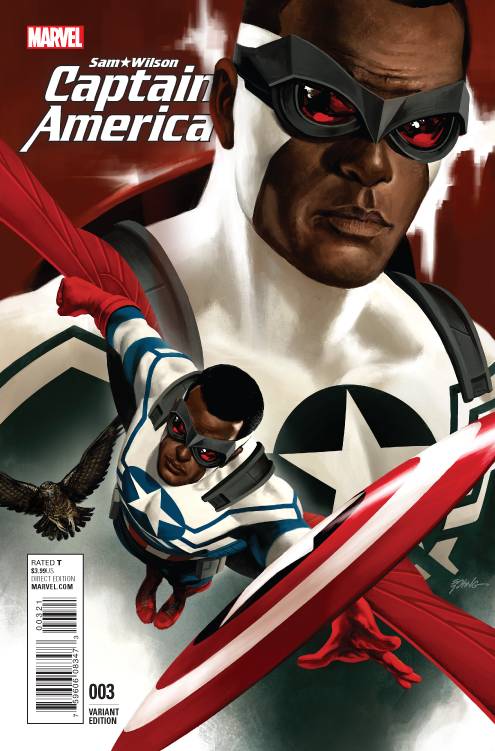

Keep up to date with Funko News, browse other redditors' hauls and collections, and engage in discussion about our favorite hobby. We're the largest Funko Community on reddit. It’s something that resonated strongly with me, as someone who isn’t white but considers this country my home, and to see this potential for fantastic storytelling wasted because the writer has no way of understanding the perspective of the titular character is a tragedy.Remove Haul Remove In Stock PSA Discussion Collection Haul News Custom Meta Tracking Creative Discount In Stock Leak What’s frustrating is that underneath all of this, there’s a compelling story about Sam Wilson being backed up against the wall by an America that has white supremacy so ingrained within its culture that it can’t allow him to be its emblem. It’s insulting to the reader and it’s insulting to everyone who isn’t a bigot to equate the creation of safe spaces and a culture of inclusion with hatred and bigotry. This is most evident in Captain America: Sam Wilson #17, where we’re forced to watch the new Falcon (an illegal immigrant) and Rage (a Black man) fight college students who are also “left-wing terrorists” who spout lines such as “Consider this your trigger warning!” and “Your very existence is problematic”. What’s even more frustrating is that every time Spencer points out the problems with right-wing and alt-right rhetoric, he seems to feel honor-bound to take potshots at the left as well. Even when Sam himself is shown to be harmed by racial profiling, it feels like it’s written from the perspective of someone who doesn’t understand how it really makes one feel. Spencer writes Sam like someone on the outside of these conflicts, rather than someone directly affected by them. So when the book tackles problems such as racial profiling, police brutality, and racist dogwhistles, the book is not able to depict the anger and pain that these issues cause. No matter how empathetic he tries to be, he will never be able to truly understand or convey the struggle of being a Black man in America. His perspective on all the social ills raised in the book are that of a white man’s. The actual contents of the collection are honestly a little bit worse than I remember, too. As a whole reading experience, this collection feels like an incomplete story, which is not really the ideal outcome for a “Complete Collection”. This continues through the Secret Empire tie-ins towards the end of the collection - each issue of Sam Wilson takes place during and between issues of the main Secret Empire event, but we don’t get those main issues, which causes the pacing to suffer.

Steve’s “Hail Hydra” moment is also relegated to a text page, which severely ruins the effect of that heel turn during the story.

We instead have to settle with pages of exposition as text that summarize the important plot beats, which leads to a serious anticlimax. The first two issues in the collection are Standoff tie-ins, but we aren’t able to actually read the Alpha or Omega issues of Standoff.

This leads to a lot of weird pacing and exposition requirements. Sam’s run as Captain America as written by Spencer is entirely juxtaposed with the evil Steve Rogers’ rise to power, and to cut out that portion of the story does Sam’s story no benefit. Where this fails, though, is that Spencer’s Captain America: Sam Wilson run intersected heavily with his controversial Captain America: Steve Rogers run, as well as Secret Empire. This collection is entirely written by Nick Spencer, and collects #7-24 of the Captain America: Sam Wilson run, the Captain America #25 issue that released during Secret Empire, and the Generations: Captain America issue that capped off Spencer’s run. Listen to the latest episode of our weekly comics podcast!


 0 kommentar(er)
0 kommentar(er)
